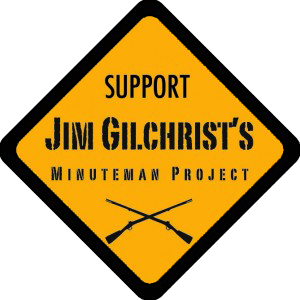By Christina A. Samuels, Education Week, Bethesda, Md.
Sept. 09– Indiana’s decision to close its state-funded preschool pilot program to 4-year-olds who are not legal U.S. residents has drawn national attention and raised sticky questions about the access of such children to education before they reach kindergarten.
The news organization Chalkbeat Indiana reported in August about the restriction on undocumented children, which Indiana officials say puts the program in line with rules governing other social service programs in the state. The preschool pilot is now in its first full year of operation.
“It would not be terribly surprising if there were calls in other states to limit access to this scarce resource,” said Margie McHugh, the director of the Migration Policy Institute’s National Center on Immigrant Integration Policy. In that role, she focuses on educational quality and access. “Even though there’s generally strong bipartisan support for expansion of pre-K services, the immigration conversation is such a hot-button one.”
Pushing Back
The $10 million Indiana pilot program, called On My Way Pre-K, has proved so far to be popular. Close to 7,000 applications from residents of five Indianacounties ended up vying for about 2,300 vouchers worth up to $6,800. Parents use the money to pay for high-quality programs of their choice. Indianapolis is using public and private funds to pay for its own program, called the Indy Preschool Scholarship Program. Indy PSP follows the same rules as the state program.
But the state’s stance on undocumented children drew some pushback from the nation’s top education official.
” Indiana is rightfully proud of its steps to expand preschool programs and elevate quality, but it’s shortsighted and wrong to deny children educational opportunity from the starting line because of their immigration status–especially children who are clearly here through no fault of their own,” U.S. Secretary of Education Arne Duncan said in a statement. Early education officials in Indiana say that the criticism of its program has been driven by misunderstandings. Restricting the program to children who are legal residents is consistent with state and federal policy for other benefits.
Also, children who are ineligible for On My Way Pre-K because of their legal status can be steered to other programs, such as Head Start or school-based programs, which have no such restrictions, state officials say.
In reality, the number of children likely to be denied entry because of their own status is small. The vast majority of young children born to undocumented immigrants were born in the U.S. and thus are citizens. The Migration Policy Institute estimates that about 5,000 Indiana residents are under the age of 16 and are undocumented. A relatively small number of those residents would be preschool age, and they would have to reside in one of the five counties served by the pilot.
But though the number of potentially excluded children would be small, Indiana appears to be unique in having such a restriction in the pilot program. Bruce Atchison, who directs the Early Learning Institute at the Education Commission of the States, said he and other experts at the federal level knew of no other programs with similar restrictions. Neither did W. Steven Barnett, the Director of the National Institute for Early Education Research at Rutgers University.
Immigrant access to elementary and secondary education is governed by the 1982 U.S. Supreme Court ruling in the case Plyler v. Doe. The high court stated that children are entitled to a K-12 education regardless of their legal status.
Where things get complicated is that Plyler did not speak of the right to prekindergarten. Even in states or cities where preschool is universally offered, it is not mandatory.
Block Grant Rules
An additional twist: Indiana’s pilot program is being funded for now through state money that, by statute, must be administered the same way that the state administers its federal Child Care and Development Block Grant funds.
The block grant provides money to low-income families to pay for child care while the parents work or go through job training programs. In Indiana, that money can only be used for children who are legal residents of the U.S.
McHugh, of the Migration Policy Institute, said she believes educators are so focused on Plyler that they may be unaware that other benefits, such as the child care block grant, food stamps, the new federal health care law and the Children’s Health Insurance Program, or CHIP, exclude undocumented children.
“The Plyler protections are so widely assumed, many simply didn’t realize they could be vulnerable to immigration status restrictions,” McHugh said.
States and cities with prekindergarten programs have chosen to handle enrollment as if they are part of the overall education system. For example, Georgia’suniversal pre-K program, paid for by state lottery funds, only requires parents to provide proof of their child’s age and that they live in the state.
Oklahoma’s pre-K program, which enrolls about three-quarters of the state’s 4-year-olds, is funded through the state’s school finance formula and also has no restrictions based on the child’s legal status.
Even though Plyler does not speak to prekindergarten, it could possibly offer protections to those programs if they were challenged, according to Michael A. Olivas, a law professor at the University of Houston who has written extensively about the case. It would depend on the specific facts of the case, he said.
“I don’t think it necessarily violates Plyler, [to block enrollment] but it violates the spirit of Plyler. You know these kids are going to be allowed in school in the 1st grade, so why would you want to fence them out in prekindergarten?” Olivas said.
María Pabón López, a law professor at the Loyola New Orleans law school, says that Plyler does match a general feeling that children should not be held responsible for the actions of their parents.
“If people get used to starting denials to undocumented children just for the heck of it … to me this is the cause of the slippery slope,” Lopez said.
Spillover Effect
The conversation about immigration has overshadowed a program that has been seen in Indiana as a bipartisan win for early childhood.
Melanie Brizzi, who directs Indiana’s office of early childhood and out-of-school learning, said all children–enrolled in the program or not–now have greater access to high-quality preschool seats. Many child care programs improve their state quality rating so that they would be eligible sites for families with vouchers, she said.
Gov. Mike Pence, a Republican, had originally proposed a statewide preschool that would have served 40,000 children. He continued advocating for some sort of preschool program, even testifying before state Senate leaders on the bill’s importance in February 2014.
“For those of us blessed to call Indiana home, we owe it to all of our children,” Pence told lawmakers at the time.
He signed the pilot program into law a month later.
___
(c)2015 Education Week (Bethesda, Md.)
Visit Education Week (Bethesda, Md.) at www.edweek.org
Distributed by Tribune Content Agency, LLC.




























